Five times interstate clubs were made to host AFL finals in Melbourne
Geelong coach Chris Scott has led the outcry about the current finals system due to the minor premier being forced to host Collingwood at the MCG. Lucky he wasn’t in charge of West Coast in the 1990s!
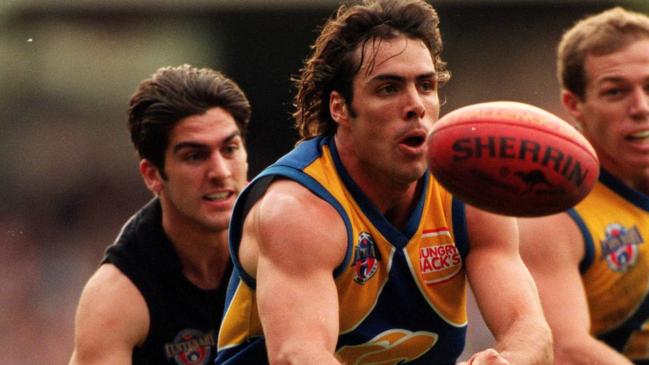
AFL Teams
Don't miss out on the headlines from AFL Teams. Followed categories will be added to My News.
Think being denied a home final after finishing as minor premier is disastrous?
How about playing a preliminary final 1700km from home after an 80-point qualifying final win?
CLICK HERE TO SUBSCRIBE TO THE SACKED PODCAST
Or trudging across the country to play a lower-ranked opponent in a semi-final, as West Coast did in 1996 and 1999 with predictable results?
Chris Scott has been a vocal critic of this year’s finals fixture, with his Geelong side to “host” Collingwood at the Magpies’ home ground on Friday night.
Geelong being scheduled to host a final at the MCG, a move the AFL says has been made to allow more fans to attend, is hardly the worst example of teams being made to play home finals at a venue other than their own.
HERE’S FIVE OTHER TIMES IT HAPPENED
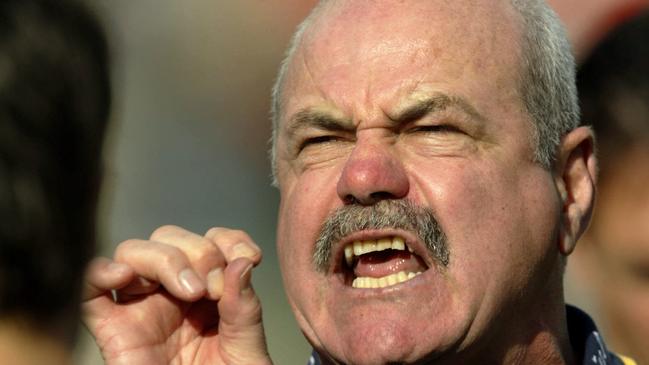
2004 — Brisbane Lions (2nd after home-and-away season) played Geelong (4th) at the MCG in a preliminary final
Does Chris Scott have a short memory? 15 years ago, the Geelong coach was part of the Brisbane side which had to play its preliminary final at the MCG against the Cats due to Port Adelaide finishing on top. The Lions and Power both triumphed in their qualifying finals, however Brisbane had to travel to Melbourne due to an agreement which stipulated one of the preliminary finals would be played at the MCG. This deal was altered after the 2004 season. The Lions scraped through to the decider with a nine-point victory, but the Power scuppered their bid for four consecutive flags. Then Brisbane coach Leigh Matthews would later write: “We had a chance to do something unbelievably special and external forces intervened to make our task harder. Do I feel we were dudded by the schedule? Well, yes, I do.”
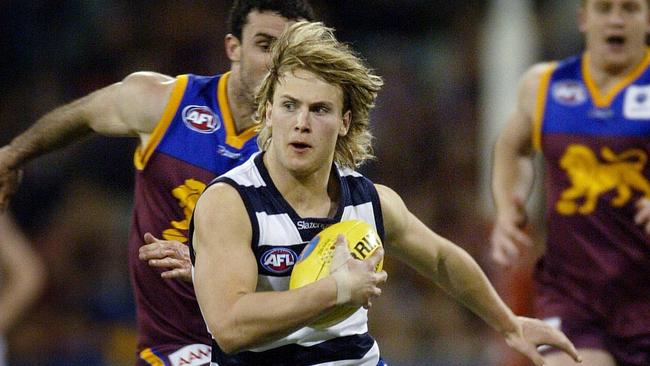
1999 — West Coast (5th) played Carlton (6th) at the MCG in a semi-final
The Eagles finished one spot higher than the Blues after the home-and-away season. Yet West Coast headed to Melbourne in week two of finals despite a victory over Western Bulldogs and Carlton’s 73-point loss to Brisbane Lions the week before. The Blues then stormed to a 54-point semi-final triumph which would prove the precursor to their famous preliminary final victory over flag favourite Essendon. Carlton defeated West Coast by 17 points in Round 10, their only meeting of the regular season. The finals loss was the last game of Mick Malthouse’s tenure as Eagles coach. The coaching great wrote in Sunday’s Herald Sun he fought fixture inequity for the decade he was in charge at West Coast.
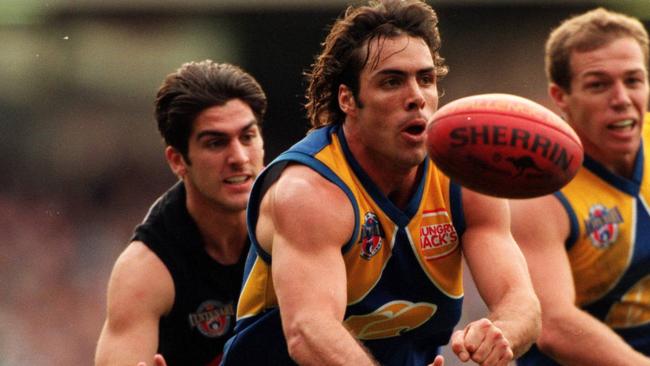
1996 — West Coast (4th) played Essendon (6th) at the MCG in a semi final
The Eagles earned a top-four finish, pipping Carlton to fourth and finishing two points ahead of Essendon. Malthouse’s side franked their premiership credentials with a 55-point trouncing of the Blues in week one of finals at Subiaco. The Bombers lost by one point in Brisbane in a qualifying final yet earned a reprieve due to Geelong (seventh) and Hawthorn (eighth) losing. West Coast was made to travel to the MCG to tackle Essendon and performed dismally, bombing out of finals with a 77-point loss. Tony Lockett sunk the Bombers after the siren in a preliminary final the next week.
1991 — West Coast (1st) played Melbourne (5th) in a semi final at Waverley Park
The Eagles finished in the same position as Geelong in 1991, topping the ladder with a 19-3 record. Hawthorn (16-6) was the next best side after the regular season and toppled the Eagles in a qualifying final upset by 23 points. West Coast’s record was far superior to Melbourne’s (fifth, 13-9), but the Eagles were assigned the long trip to Waverley Park in week two. West Coast bounced back and qualified for the Grand Final, but went down to the Hawks.
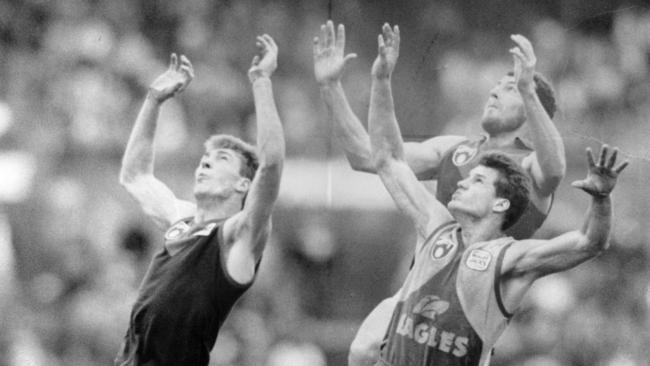
1988 — West Coast (4th) played Melbourne (5th) in an elimination final at Waverley Park
The Eagles enjoyed a 9-2 home record in 1988 and sealed a finals spot when they downed Footscray in the last round at Western Oval. Their reward was not hosting the Demons at Subiaco, but trekking to Waverley Park for a do-or-die clash. West Coast dominated the opening exchanges but one wonders whether the travel caught up with them as they conceded six third-quarter goals, which led to their demise.
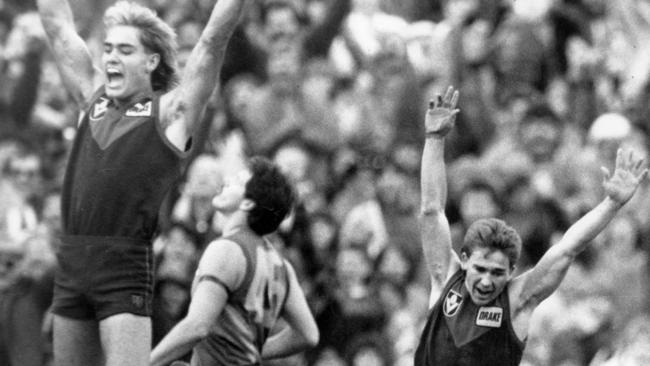
AND A TIME WHEN GEELONG COPPED A RAW DEAL …
1997 — Geelong (2nd) played Adelaide (4th) in an elimination final at Football Park
The Cats lost their opening final to seventh-placed North Melbourne by 18 points after finishing 15-7 at the end of the home-and-away season. The McIntyre finals system which has in place meant Geelong, as the highest-placed loser, took on the third-highest ranked winner in a semi-final — Adelaide — away. Minor premier St Kilda and third-placed Western Bulldogs were successful in qualifying finals, going straight through to preliminary final week due to Geelong’s loss. The Cats bombed out in straight sets with a heartbreaking eight-point loss and the Crows were crowned premiers two weeks later. The semi-final is best remembered for Leigh Colbert being denied a courageous pack mark at a crucial period during the third quarter. Geelong was eight points up when Colbert would have had a shot from 35m out to extend the lead.
Originally published as Five times interstate clubs were made to host AFL finals in Melbourne
